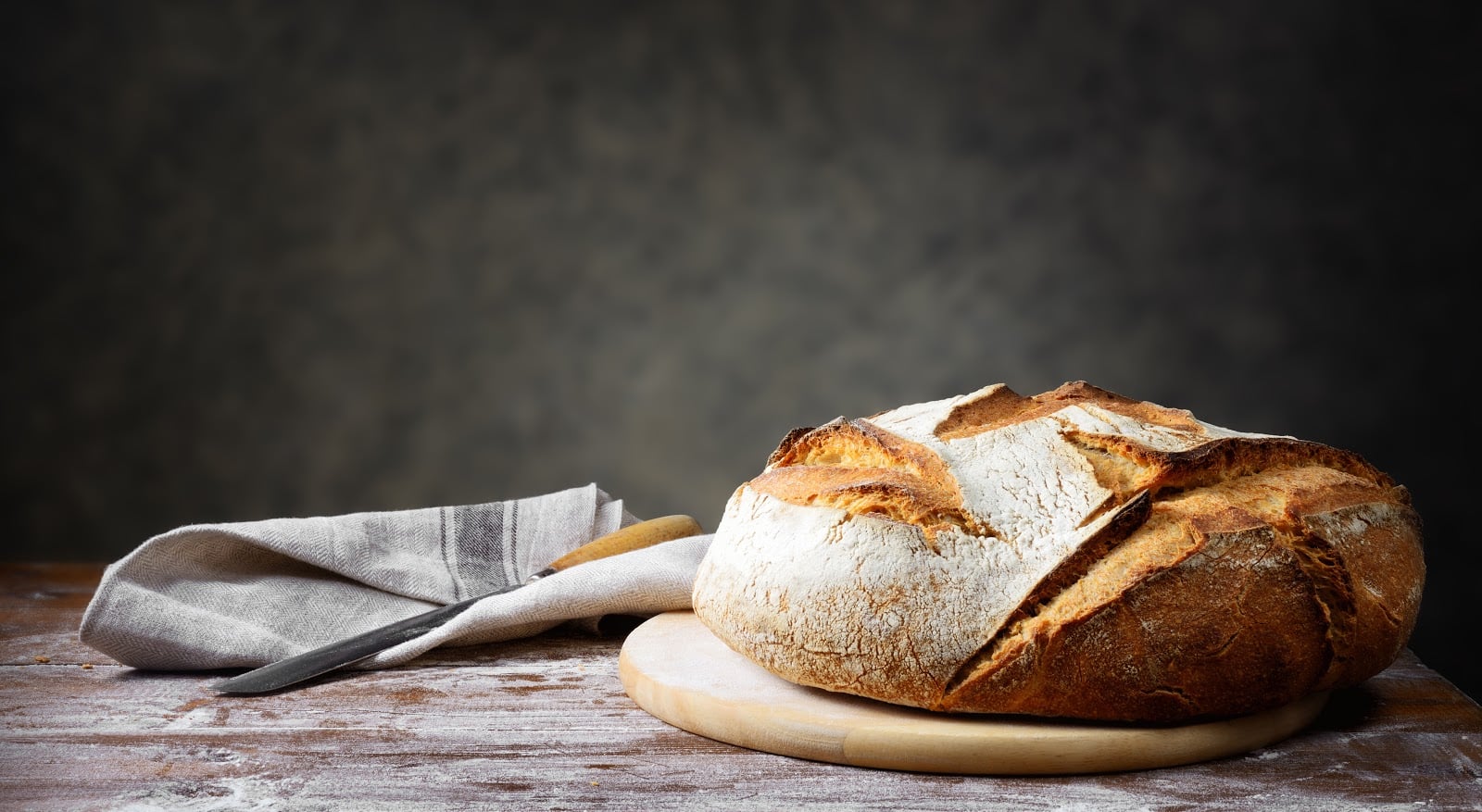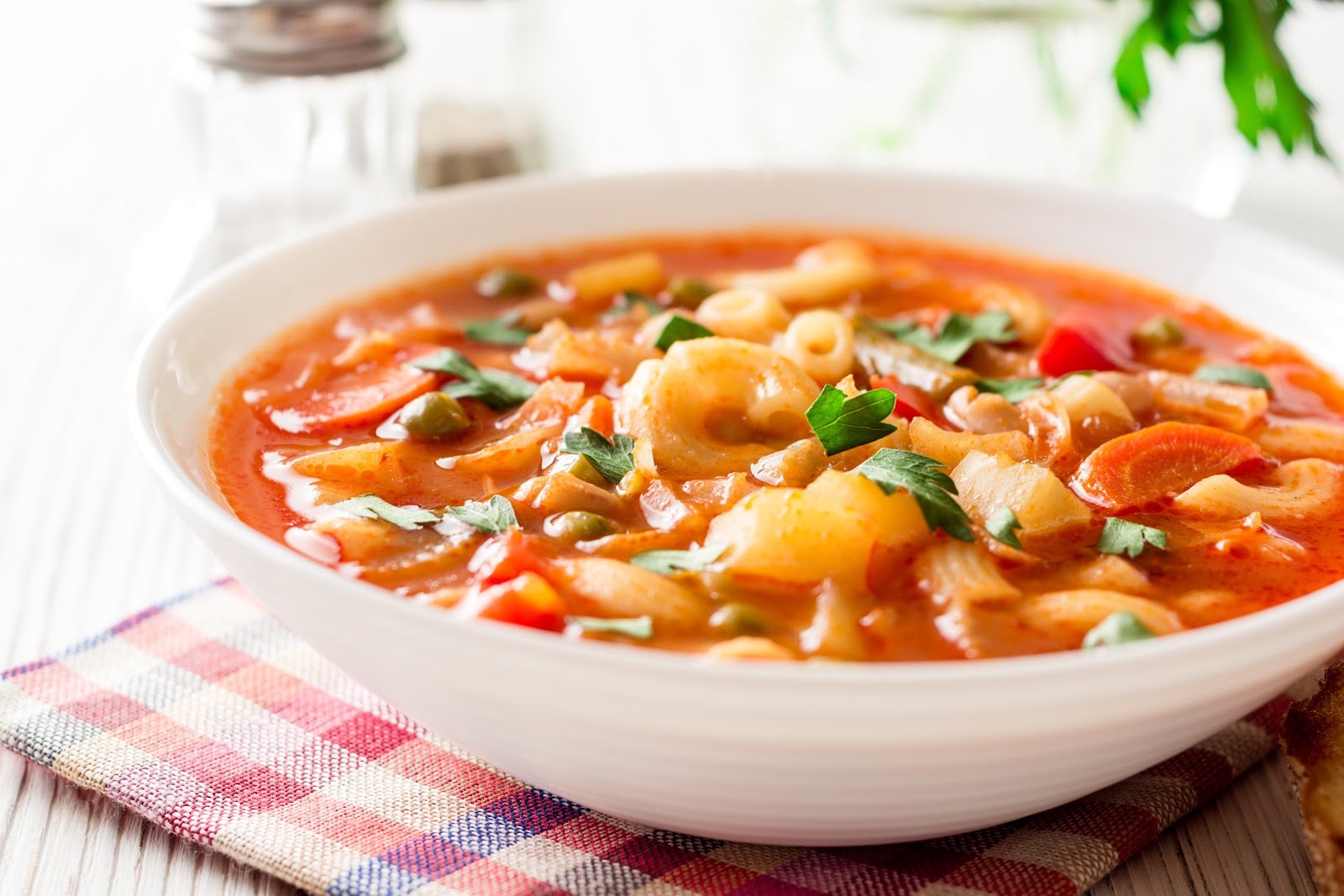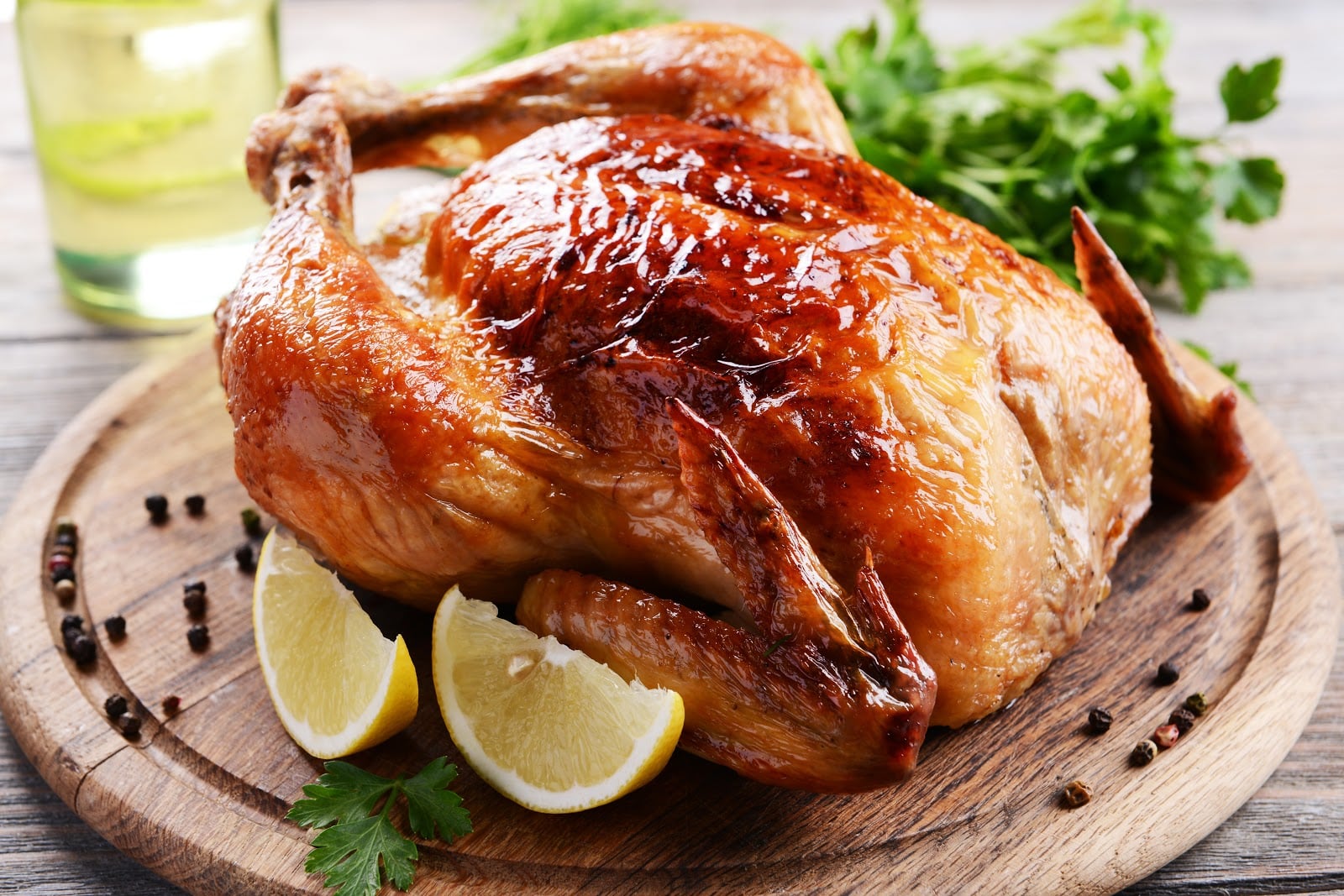What To Eat on an IBS Diet: 14 Menu and Snack Ideas
Good Food for Fewer Symptoms
- Which Diet Is Best for IBS?|
- Food to Eat and Avoid|
- Gluten and IBS|
- Fiber and IBS|
- Menu Plan|
- Food Shopping|
- Dining Out|
- IBS Diet Tips|
- Other Ways To Help IBS|
If you’ve been diagnosed with irritable bowel syndrome, you may be worried that it is considered a chronic, lifelong condition. No one wants to struggle with abdominal pain, bloating, cramping, and emergency bathroom visits for the rest of their lives. However, there’s no need to despair. With the right information and treatments, you can enjoy an excellent quality of life, free of flare-ups, fatigue, and pain.
One of the most important treatments for managing IBS is diet. While dietary change can be challenging, I hear IBS patients say it’s worth the effort.
Here are some real-world food guidelines, recipe ideas, and tips to help get you started on an IBS diet.

Which Diet Is Best for Irritable Bowel Syndrome?
If you’re not already eating a healthy, whole foods diet, this can be an important place to start. A diet high in processed foods, sugars, alcohol, and poor quality fats can aggravate IBS symptoms [1].
The most important basics for an IBS diet are to choose fresh, whole, unprocessed foods, and reduce alcohol and caffeine intake. The Paleo Diet is anti-inflammatory and can be a good next step for improving your gut health.
For patients who want to take additional steps in managing their symptoms through diet, I recommend a low FODMAP diet. This diet was developed specifically to help patients with gut conditions. It works by reducing foods that can feed bacterial overgrowth.
There’s a significant amount of high-quality research showing that a low FODMAP diet helps IBS patients reduce their digestive symptoms and increase their quality of life [2, 3, 4, 5, 6, 7, 8, 9, 10]. The low FODMAP diet has also been shown to improve diarrhea and normalize bowel function [11, 12, 13, 14]. One study found the low FODMAP approach works better than standard dietary advice [15].
The low FODMAP diet has also been shown to reduce abdominal pain for IBS patients [16] and to reduce pain levels for fibromyalgia patients [17]. Research has found a strong association between IBS and fibromyalgia — one study involving fibromyalgia patients found that 48% of them also had IBS [18].
Foods To Eat and Foods To Avoid on an IBS Diet
FODMAP is an acronym for fermentable oligosaccharides disaccharides monosaccharides and polyols. Essentially, these are fermentable carbohydrates that can cause your IBS symptoms to flare up.
The low FODMAP diet is an elimination diet intended to help you identify your personal trigger foods. In the elimination phase of the diet, you will replace high FODMAP foods with lower FODMAP choices. After 2-3 weeks of elimination, you can slowly reintroduce foods, one at a time, while observing your reactions.
| Type | Low FODMAP Foods | High FODMAP Foods |
| Veggies | Zucchini, green beans, bok choy, red bell pepper, eggplant, carrot, lettuce, potato, tomato | Cauliflower, artichokes, asparagus, cabbage, broccoli, brussel sprouts, green bell pepper |
| Fruits | Blueberries, kiwi, banana, grape, lemon, lime, orange, cantaloupe | Blackberry, apricot, mango, apple, avocado, pear, peach, nectarines, plums, watermelon |
| Legumes | x | Lentils, beans, chickpeas, peas |
| Nuts and Seeds | Macadamia nuts, almonds (<10), peanuts, pecans, walnuts (<10) | Cashews, pistachios, almonds (>10) |
| Dairy Products | Feta cheese, lactose-free milk or cheese, almond milk | Brie, ice cream, yogurt |
| Grains | White rice, quinoa, millet | Wheat and rye |
| Natural and Artificial Sweeteners | Glucose | Fructose, high fructose corn syrup, mannitol, xylitol, sorbitol, maltitol, agave, |
| Prebiotics & Additives | x | Galactooligosaccharides (GOS), isomalt, inulin, fructooligosaccharides (FOS) |
For more detailed FODMAP food lists based on laboratory food testing, see this health information from Monash University.
Gluten on an IBS Diet

Gluten is the protein in wheat that triggers symptoms for patients with celiac disease. Wheat is restricted on the low FODMAP diet, but not because of it’s gluten content.
Wheat is high in fructans, which is a fermentable carbohydrate that can cause IBS symptoms. Research suggests that, for some patients with non-celiac gluten sensitivity, digestive symptoms such as bloating, flatulence, and abdominal pain may be triggered by the fructans content in wheat rather than gluten [19].
Some gluten-free products may be appropriate for a low FODMAP diet because they are made with low FODMAP grains such as rice or corn. However, you can’t assume that gluten-free foods are low in FODMAPS, so it’s important to check ingredient labels.
Fiber on an IBS Diet
Soluble fiber supplements like psyllium or Metamucil can be very helpful for IBS patients with constipation [20]. Research shows that soluble fiber can even improve global IBS symptoms [21, 22, 23]. However, IBS patients need to use fiber supplements with caution. For some IBS patients, fiber triggers bloating, gas, and abdominal pain [24].
If you want to try a fiber supplement, start at a very low dose that you slowly increase. But if you experience negative side effects, discontinue using the fiber supplement. You can try the same process again once your gut health has improved.
A Low FODMAP Menu Plan
When you start a low FODMAP diet, sticking to a very simple menu plan will increase your chances of a successful transition. You can always try out new recipes once you feel more comfortable with your dietary changes.
Make-Ahead Foods
Here is an example of a simple, low FODMAP menu plan based on a few make-ahead foods. The idea is to have easy-to-prepare and delicious meal options cooked and ready to go in your fridge.
Oven-Roasted Root Vegetables

- Choose low-FODMAP root vegetables such as potato, yam, carrots, turnips, and/or parsnips.
- Cut into 1-inch chunks, and arrange a shallow layer in a large roasting pan.
- Toss in olive oil and season with salt, pepper, and your favorite herbs. Try rosemary for an earthy, Mediterranean flavor.
- Roast at 400 degrees. Give the veggies a stir after 25 minutes. Check with a fork at 45 minutes. Allow 45-60 minutes for cooking time.
Low FODMAP Minestrone Soup

- Chop carrots, potato, zucchini, green beans, and green onion (green parts only) into bite-sized chunks. Aim for about 4 cups of chopped vegetables.
- Cook carrots and potatoes in 2 cups of water or chicken broth for 15 minutes. Add zucchini, green beans, and green onion. Steam with carrots and potatoes for an additional 5 minutes.
- Season with salt, pepper, oregano, and thyme to taste.
- Add 1 small can of diced tomatoes and the juice of 1/2 a lemon.
- Add a handful of low FODMAP rice or corn pasta. You may need to add more water or broth. Cook until the pasta is tender.
Simple Roast Chicken

- Drench a chicken in lemon juice and season with salt and pepper.
- Oven-roast at 350 degrees for 20 minutes per pound plus 15 minutes. Or pressure cook in an Instant Pot for 8 minutes per pound.
- If you want more browning, place chicken under your oven broiler for 5 minutes.
Steamed White Rice
- Steam a pot of white rice to have on hand as a FODMAP-friendly side dish or ingredient.
- If you use instant rice products, check the label for high-FODMAP ingredients.
Breakfast
- Scrambled eggs with green onion and bell pepper
- Oven-roasted root vegetables (see above instructions)
Lunch
- Low FODMAP minestrone soup
- Green salad with tomato, cucumber, bell pepper, and chicken
Dinner
- Roast chicken, oven-roasted root vegetables, and steamed green beans, OR
- Chicken fried rice (check online for a recipe)
Dessert
- Low FODMAP fruit: Blueberries, oranges, bananas
- Low FODMAP rice pudding (check online for a recipe)
Snack Foods
- Air-popped popcorn
- Low FODMAP veggie sticks made from carrots, bell peppers, and cucumber
This simple meal-planning template can be repeated using different make-ahead ingredients. Instead of roast chicken, you can cook roast beef or salmon. Or, try different variations of roasted root vegetables. Stick to the same soup recipe, or try another simple recipe, such as low FODMAP carrot-ginger soup.
Shopping for Low FODMAP Food Products
Low FODMAP food products are becoming more available in grocery stores. Garlic-infused cooking oils and lactose-free ice cream can be a real treat if you are on a restricted diet.
At the same time, be careful not to depend too much on packaged food products. Fresh, whole foods should always make up the bulk of a healthy diet.
Dining Out on an IBS Diet
Dining out can be tricky on an elimination diet. However, there are still good options for a restaurant meal. For low FODMAP choices, try:
- A steakhouse for grilled meats, potatoes, and veggies. Stay away from sauces and marinades.
- A Thai, Chinese, or Japanese restaurant for rice-based dishes. Soy sauce does contain a tiny bit of wheat but is not a problem for a low FODMAP diet.
- Gluten-free options may also be low in FODMAPs.
- Salads (ask for oil and vinegar dressing).
Most restaurants have online menus, and some even provide detailed ingredient lists. Sticking to a few favorite restaurants with good menu options is a good strategy for dining out without stress.
Keep in mind that it’s not necessary to follow the diet completely, 100% of the time. If low FODMAP menu options are limited, make the best choices possible and don’t sweat every detail of the diet.
Tips for an IBS Diet

Since following an IBS diet can feel restrictive, I put together a list of tips to keep in mind as you plan your meals:
1. Be prepared. Pick a simple meal plan based on a small number of ingredients. Make a food list, and stock your pantry with ingredients you will need. It’s a good idea to remove tempting, high FODMAPs foods. Batch cook your staple low FODMAP meals and freeze daily portion sizes.
2. Try the diet for 2-3 weeks. If the low FODMAP approach works for you, you should experience a reduction in symptoms within 2-3 weeks. Stick to the guidelines fairly closely during the trial period, but don’t worry about doing it perfectly. Following any diet too rigorously can lead to stress that may contribute to IBS flare ups.
3. Don’t stay on any diet if it’s not working. If you don’t notice any benefit after a few weeks, FODMAPS may not be a problem for you. Consider a different dietary approach like a Paleo diet.
4. Reintroduce foods slowly and one at a time. Start by reintroducing the food you miss the most. Monitor your symptoms for two days after the reintroduction. If you don’t react, you can follow with another reintroduction. If your symptoms flare up after a food reintroduction, wait until your symptoms are under control before you introduce another food.
5. The purpose of an elimination diet is to reduce your symptoms and identify your trigger foods. Most IBS patients don’t need to restrict all FODMAP foods permanently. As you reintroduce foods, you may find that you tolerate some foods well. The long-term goal is to expand your diet as much as possible while continuing to manage your symptoms.
Other Ways To Help IBS
A low FODMAP diet can help calm a touchy digestive system. Ultimately, a combination of IBS treatments may provide you with the most relief. Take a step-by-step approach when trying out new treatments, and monitor your symptoms. Over time, you can develop an effective, personalized treatment plan for IBS.
Here are some other treatment options you may wish to try.
Probiotics
High-quality research shows that probiotics improve IBS symptoms, including bloating, abdominal pain, gas, diarrhea, and constipation [25, 26, 27, 28, 29].
Probiotics may also improve non-digestive symptoms that are common for IBS patients, including fatigue [30, 31], joint or body pain [32, 33, 34], and brain fog [35, 36].
Stress Reduction
Stress is a common trigger for IBS symptoms, and preliminary research suggests that stress reduction techniques, such as cognitive behavioral therapy [37, 38], hypnotherapy [39, 40], and meditation [41], can be helpful for IBS patients.
Treatment of Gut Dysbiosis
Gut dysbiosis is an imbalance in your normal gut flora. IBS symptoms have been shown to correlate with dysbiosis [42], particularly small intestinal bacteria overgrowth (SIBO) [43, 44, 45]. In this case, an antimicrobial can be very helpful [46].
Talk with your doctor, or refer to my book Healthy Gut, Healthy You for more specifics about how to use antimicrobial treatment for IBS.
Conclusion
IBS symptoms are unpredictable and negatively impact your quality of life [47]. However, there’s lots you can do to take charge of your gut health and keep IBS symptoms in check.
Changing your diet can have a big health payoff in a very short period of time. A 2-3 week trial of a Paleo or low FODMAP diet is enough time to tell if dietary changes make a difference for your symptoms
Getting started is often the hardest part. Plan ahead for success and keep your diet very simple during the trial period. As I’ve seen many times with patients with symptoms of IBS, feeling good is the best motivation to continue with dietary improvements.
Dr. Michael Ruscio is a DC, natural health provider, researcher, and clinician. He serves as an Adjunct Professor at the University of Bridgeport and has published numerous papers in scientific journals as well as the book Healthy Gut, Healthy You. He also founded the Ruscio Institute of Functional Health, where he helps patients with a wide range of GI conditions and serves as the Head of Research.➕ References
- McKenzie YA, Bowyer RK, Leach H, Gulia P, Horobin J, O’Sullivan NA, Pettitt C, Reeves LB, Seamark L, Williams M, Thompson J, Lomer MC; (IBS Dietetic Guideline Review Group on behalf of Gastroenterology Specialist Group of the British Dietetic Association). British Dietetic Association systematic review and evidence-based practice guidelines for the dietary management of irritable bowel syndrome in adults (2016 update). J Hum Nutr Diet. 2016 Oct;29(5):549-75. doi: 10.1111/jhn.12385. Epub 2016 Jun 8. PMID: 27272325.
- Marsh A, Eslick EM, Eslick GD. Does a diet low in FODMAPs reduce symptoms associated with functional gastrointestinal disorders? A comprehensive systematic review and meta-analysis. Eur J Nutr. 2016 Apr;55(3):897-906. doi: 10.1007/s00394-015-0922-1. Epub 2015 May 17. PMID: 25982757.
- Altobelli E, Del Negro V, Angeletti PM, Latella G. Low-FODMAP Diet Improves Irritable Bowel Syndrome Symptoms: A Meta-Analysis. Nutrients. 2017 Aug 26;9(9):940. doi: 10.3390/nu9090940. PMID: 28846594; PMCID: PMC5622700.
- Gibson PR. Use of the low-FODMAP diet in inflammatory bowel disease. J Gastroenterol Hepatol. 2017 Mar;32 Suppl 1:40-42. doi: 10.1111/jgh.13695. PMID: 28244679.
- Pedersen N, Ankersen DV, Felding M, Wachmann H, Végh Z, Molzen L, Burisch J, Andersen JR, Munkholm P. Low-FODMAP diet reduces irritable bowel symptoms in patients with inflammatory bowel disease. World J Gastroenterol. 2017 May 14;23(18):3356-3366. doi: 10.3748/wjg.v23.i18.3356. PMID: 28566897; PMCID: PMC5434443.
- Zhan YL, Zhan YA, Dai SX. Is a low FODMAP diet beneficial for patients with inflammatory bowel disease? A meta-analysis and systematic review. Clin Nutr. 2018 Feb;37(1):123-129. doi: 10.1016/j.clnu.2017.05.019. Epub 2017 May 24. PMID: 28587774.
- Cox SR, Lindsay JO, Fromentin S, Stagg AJ, McCarthy NE, Galleron N, Ibraim SB, Roume H, Levenez F, Pons N, Maziers N, Lomer MC, Ehrlich SD, Irving PM, Whelan K. Effects of Low FODMAP Diet on Symptoms, Fecal Microbiome, and Markers of Inflammation in Patients With Quiescent Inflammatory Bowel Disease in a Randomized Trial. Gastroenterology. 2020 Jan;158(1):176-188.e7. doi: 10.1053/j.gastro.2019.09.024. Epub 2019 Oct 2. PMID: 31586453.
- Gibson PR, Shepherd SJ. Evidence-based dietary management of functional gastrointestinal symptoms: The FODMAP approach. J Gastroenterol Hepatol. 2010 Feb;25(2):252-8. doi: 10.1111/j.1440-1746.2009.06149.x. PMID: 20136989.
- Gibson PR, Shepherd SJ. Food choice as a key management strategy for functional gastrointestinal symptoms. Am J Gastroenterol. 2012 May;107(5):657-66; quiz 667. doi: 10.1038/ajg.2012.49. Epub 2012 Apr 10. PMID: 22488077.
- Gibson PR, Shepherd SJ. Evidence-based dietary management of functional gastrointestinal symptoms: The FODMAP approach. J Gastroenterol Hepatol. 2010 Feb;25(2):252-8. doi: 10.1111/j.1440-1746.2009.06149.x. PMID: 20136989.
- Zahedi MJ, Behrouz V, Azimi M. Low fermentable oligo-di-mono-saccharides and polyols diet versus general dietary advice in patients with diarrhea-predominant irritable bowel syndrome: A randomized controlled trial. J Gastroenterol Hepatol. 2018 Jun;33(6):1192-1199. doi: 10.1111/jgh.14051. Epub 2018 Feb 21. PMID: 29159993.
- Mazzawi T, El-Salhy M. Changes in duodenal enteroendocrine cells in patients with irritable bowel syndrome following dietary guidance. Exp Biol Med (Maywood). 2017 Jul;242(13):1355-1362. doi: 10.1177/1535370217699537. Epub 2017 Mar 17. PMID: 28737477; PMCID: PMC5528200.
- Mazzawi T, Hausken T, Gundersen D, El-Salhy M. Dietary guidance normalizes large intestinal endocrine cell densities in patients with irritable bowel syndrome. Eur J Clin Nutr. 2016 Feb;70(2):175-81. doi: 10.1038/ejcn.2015.191. Epub 2015 Nov 25. PMID: 26603880; PMCID: PMC4744244.
- Mazzawi T, El-Salhy M. Effect of diet and individual dietary guidance on gastrointestinal endocrine cells in patients with irritable bowel syndrome (Review). Int J Mol Med. 2017 Oct;40(4):943-952. doi: 10.3892/ijmm.2017.3096. Epub 2017 Aug 11. PMID: 28849091; PMCID: PMC5593462.
- Zahedi MJ, Behrouz V, Azimi M. Low fermentable oligo-di-mono-saccharides and polyols diet versus general dietary advice in patients with diarrhea-predominant irritable bowel syndrome: A randomized controlled trial. J Gastroenterol Hepatol. 2018 Jun;33(6):1192-1199. doi: 10.1111/jgh.14051. Epub 2018 Feb 21. PMID: 29159993.
- Marsh A, Eslick EM, Eslick GD. Does a diet low in FODMAPs reduce symptoms associated with functional gastrointestinal disorders? A comprehensive systematic review and meta-analysis. Eur J Nutr. 2016 Apr;55(3):897-906. doi: 10.1007/s00394-015-0922-1. Epub 2015 May 17. PMID: 25982757.
- Marum AP, Moreira C, Saraiva F, Tomas-Carus P, Sousa-Guerreiro C. A low fermentable oligo-di-mono saccharides and polyols (FODMAP) diet reduced pain and improved daily life in fibromyalgia patients. Scand J Pain. 2016 Oct;13:166-172. doi: 10.1016/j.sjpain.2016.07.004. Epub 2016 Aug 22. PMID: 28850525.
- Whitehead WE, Palsson O, Jones KR. Systematic review of the comorbidity of irritable bowel syndrome with other disorders: what are the causes and implications? Gastroenterology. 2002 Apr;122(4):1140-56. doi: 10.1053/gast.2002.32392. PMID: 11910364.
- Dieterich W, Zopf Y. Gluten and FODMAPS-Sense of a Restriction/When Is Restriction Necessary? Nutrients. 2019 Aug 20;11(8):1957. doi: 10.3390/nu11081957. PMID: 31434299; PMCID: PMC6723650.
- El-Salhy M, Ystad SO, Mazzawi T, Gundersen D. Dietary fiber in irritable bowel syndrome (Review). Int J Mol Med. 2017 Sep;40(3):607-613. doi: 10.3892/ijmm.2017.3072. Epub 2017 Jul 19. PMID: 28731144; PMCID: PMC5548066.
- Moayyedi P, Quigley EM, Lacy BE, Lembo AJ, Saito YA, Schiller LR, Soffer EE, Spiegel BM, Ford AC. The effect of fiber supplementation on irritable bowel syndrome: a systematic review and meta-analysis. Am J Gastroenterol. 2014 Sep;109(9):1367-74. doi: 10.1038/ajg.2014.195. Epub 2014 Jul 29. PMID: 25070054.
- Furnari M, de Bortoli N, Martinucci I, Bodini G, Revelli M, Marabotto E, Moscatelli A, Del Nero L, Savarino E, Giannini EG, Savarino V. Optimal management of constipation associated with irritable bowel syndrome. Ther Clin Risk Manag. 2015 May 30;11:691-703. doi: 10.2147/TCRM.S54298. PMID: 26028974; PMCID: PMC4425337.
- Bellini M, Gambaccini D, Salvadori S, Tosetti C, Urbano MT, Costa F, Monicelli P, Mumolo MG, Ricchiuti A, De Bortoli N, Marchi S. Management of chronic constipation in general practice. Tech Coloproctol. 2014 Jun;18(6):543-9. doi: 10.1007/s10151-013-1093-9. Epub 2013 Nov 22. PMID: 24272606.
- El-Salhy M, Ystad SO, Mazzawi T, Gundersen D. Dietary fiber in irritable bowel syndrome (Review). Int J Mol Med. 2017 Sep;40(3):607-613. doi: 10.3892/ijmm.2017.3072. Epub 2017 Jul 19. PMID: 28731144; PMCID: PMC5548066.
- Yuan F, Ni H, Asche CV, Kim M, Walayat S, Ren J. Efficacy of Bifidobacterium infantis 35624 in patients with irritable bowel syndrome: a meta-analysis. Curr Med Res Opin. 2017 Jul;33(7):1191-1197. doi: 10.1080/03007995.2017.1292230. Epub 2017 Mar 7. PMID: 28166427.
- Tiequn B, Guanqun C, Shuo Z. Therapeutic effects of Lactobacillus in treating irritable bowel syndrome: a meta-analysis. Intern Med. 2015;54(3):243-9. doi: 10.2169/internalmedicine.54.2710. PMID: 25748731.
- McFarland LV, Dublin S. Meta-analysis of probiotics for the treatment of irritable bowel syndrome. World J Gastroenterol. 2008 May 7;14(17):2650-61. doi: 10.3748/wjg.14.2650. PMID: 18461650; PMCID: PMC2709042.
- Whelan K. Probiotics and prebiotics in the management of irritable bowel syndrome: a review of recent clinical trials and systematic reviews. Curr Opin Clin Nutr Metab Care. 2011 Nov;14(6):581-7. doi: 10.1097/MCO.0b013e32834b8082. PMID: 21892075.
- Ford AC, Quigley EM, Lacy BE, Lembo AJ, Saito YA, Schiller LR, Soffer EE, Spiegel BM, Moayyedi P. Efficacy of prebiotics, probiotics, and synbiotics in irritable bowel syndrome and chronic idiopathic constipation: systematic review and meta-analysis. Am J Gastroenterol. 2014 Oct;109(10):1547-61; quiz 1546, 1562. doi: 10.1038/ajg.2014.202. Epub 2014 Jul 29. PMID: 25070051.
- Frändemark Å, Jakobsson Ung E, Törnblom H, Simrén M, Jakobsson S. Fatigue: a distressing symptom for patients with irritable bowel syndrome. Neurogastroenterol Motil. 2017 Jan;29(1). doi: 10.1111/nmo.12898. Epub 2016 Jul 11. PMID: 27401139.
- Han CJ, Yang GS. Fatigue in Irritable Bowel Syndrome: A Systematic Review and Meta-analysis of Pooled Frequency and Severity of Fatigue. Asian Nurs Res (Korean Soc Nurs Sci). 2016 Mar;10(1):1-10. doi: 10.1016/j.anr.2016.01.003. Epub 2016 Feb 1. PMID: 27021828.
- Chakiath RJ, Siddall PJ, Kellow JE, Hush JM, Jones MP, Marcuzzi A, Wrigley PJ. Descending pain modulation in irritable bowel syndrome (IBS): a systematic review and meta-analysis. Syst Rev. 2015 Dec 10;4:175. doi: 10.1186/s13643-015-0162-8. PMID: 26652749; PMCID: PMC4674951.
- Berstad A, Undseth R, Lind R, Valeur J. Functional bowel symptoms, fibromyalgia and fatigue: a food-induced triad? Scand J Gastroenterol. 2012 Sep;47(8-9):914-9. doi: 10.3109/00365521.2012.690045. Epub 2012 May 18. PMID: 22594347; PMCID: PMC3793273.
- Nilholm C, Roth B, Ohlsson B. A Dietary Intervention with Reduction of Starch and Sucrose Leads to Reduced Gastrointestinal and Extra-Intestinal Symptoms in IBS Patients. Nutrients. 2019 Jul 20;11(7):1662. doi: 10.3390/nu11071662. PMID: 31330810; PMCID: PMC6682926.
- Hausteiner-Wiehle C, Henningsen P. Irritable bowel syndrome: relations with functional, mental, and somatoform disorders. World J Gastroenterol. 2014 May 28;20(20):6024-30. doi: 10.3748/wjg.v20.i20.6024. PMID: 24876725; PMCID: PMC4033442.
- Frändemark Å, Jakobsson Ung E, Törnblom H, Simrén M, Jakobsson S. Fatigue: a distressing symptom for patients with irritable bowel syndrome. Neurogastroenterol Motil. 2017 Jan;29(1). doi: 10.1111/nmo.12898. Epub 2016 Jul 11. PMID: 27401139.
- Zhao SR, Ni XM, Zhang XA, Tian H. Effect of cognitive behavior therapy combined with exercise intervention on the cognitive bias and coping styles of diarrhea-predominant irritable bowel syndrome patients. World J Clin Cases. 2019 Nov 6;7(21):3446-3462. doi: 10.12998/wjcc.v7.i21.3446. PMID: 31750328; PMCID: PMC6854400.
- Lackner JM, Jaccard J, Keefer L, Brenner DM, Firth RS, Gudleski GD, Hamilton FA, Katz LA, Krasner SS, Ma CX, Radziwon CD, Sitrin MD. Improvement in Gastrointestinal Symptoms After Cognitive Behavior Therapy for Refractory Irritable Bowel Syndrome. Gastroenterology. 2018 Jul;155(1):47-57. doi: 10.1053/j.gastro.2018.03.063. Epub 2018 Apr 25. Erratum in: Gastroenterology. 2018 Oct;155(4):1281. PMID: 29702118; PMCID: PMC6035059.
- Peters SL, Muir JG, Gibson PR. Review article: gut-directed hypnotherapy in the management of irritable bowel syndrome and inflammatory bowel disease. Aliment Pharmacol Ther. 2015 Jun;41(11):1104-15. doi: 10.1111/apt.13202. Epub 2015 Apr 10. PMID: 25858661.
- Miller V, Carruthers HR, Morris J, Hasan SS, Archbold S, Whorwell PJ. Hypnotherapy for irritable bowel syndrome: an audit of one thousand adult patients. Aliment Pharmacol Ther. 2015 May;41(9):844-55. doi: 10.1111/apt.13145. Epub 2015 Mar 4. PMID: 25736234.
- Shah K, Ramos-Garcia M, Bhavsar J, Lehrer P. Mind-body treatments of irritable bowel syndrome symptoms: An updated meta-analysis. Behav Res Ther. 2020 May;128:103462. doi: 10.1016/j.brat.2019.103462. Epub 2019 Nov 12. PMID: 32229334.
- Wang L, Alammar N, Singh R, Nanavati J, Song Y, Chaudhary R, Mullin GE. Gut Microbial Dysbiosis in the Irritable Bowel Syndrome: A Systematic Review and Meta-Analysis of Case-Control Studies. J Acad Nutr Diet. 2020 Apr;120(4):565-586. doi: 10.1016/j.jand.2019.05.015. Epub 2019 Aug 28. PMID: 31473156.
- Schmulson M, Bielsa MV, Carmona-Sánchez R, Hernández A, López-Colombo A, López Vidal Y, Peláez-Luna M, Remes-Troche JM, Tamayo JL, Valdovinos MA. Microbiota, gastrointestinal infections, low-grade inflammation, and antibiotic therapy in irritable bowel syndrome: an evidence-based review. Rev Gastroenterol Mex. 2014 Apr-Jun;79(2):96-134. English, Spanish. doi: 10.1016/j.rgmx.2014.01.004. Epub 2014 May 23. PMID: 24857420.
- Takakura W, Pimentel M. Small Intestinal Bacterial Overgrowth and Irritable Bowel Syndrome – An Update. Front Psychiatry. 2020 Jul 10;11:664. doi: 10.3389/fpsyt.2020.00664. PMID: 32754068; PMCID: PMC7366247.
- Saffouri GB, Shields-Cutler RR, Chen J, Yang Y, Lekatz HR, Hale VL, Cho JM, Battaglioli EJ, Bhattarai Y, Thompson KJ, Kalari KK, Behera G, Berry JC, Peters SA, Patel R, Schuetz AN, Faith JJ, Camilleri M, Sonnenburg JL, Farrugia G, Swann JR, Grover M, Knights D, Kashyap PC. Small intestinal microbial dysbiosis underlies symptoms associated with functional gastrointestinal disorders. Nat Commun. 2019 May 1;10(1):2012. doi: 10.1038/s41467-019-09964-7. PMID: 31043597; PMCID: PMC6494866.
- Saadi M, McCallum RW. Rifaximin in irritable bowel syndrome: rationale, evidence and clinical use. Ther Adv Chronic Dis. 2013 Mar;4(2):71-5. doi: 10.1177/2040622312472008. PMID: 23556126; PMCID: PMC3610260.
- Kopczyńska M, Mokros Ł, Pietras T, Małecka-Panas E. Quality of life and depression in patients with irritable bowel syndrome. Prz Gastroenterol. 2018;13(2):102-108. doi: 10.5114/pg.2018.75819. Epub 2018 May 16. PMID: 30002768; PMCID: PMC6040097.

Discussion
I care about answering your questions and sharing my knowledge with you. Leave a comment or connect with me on social media asking any health question you may have and I just might incorporate it into our next listener questions podcast episode just for you!